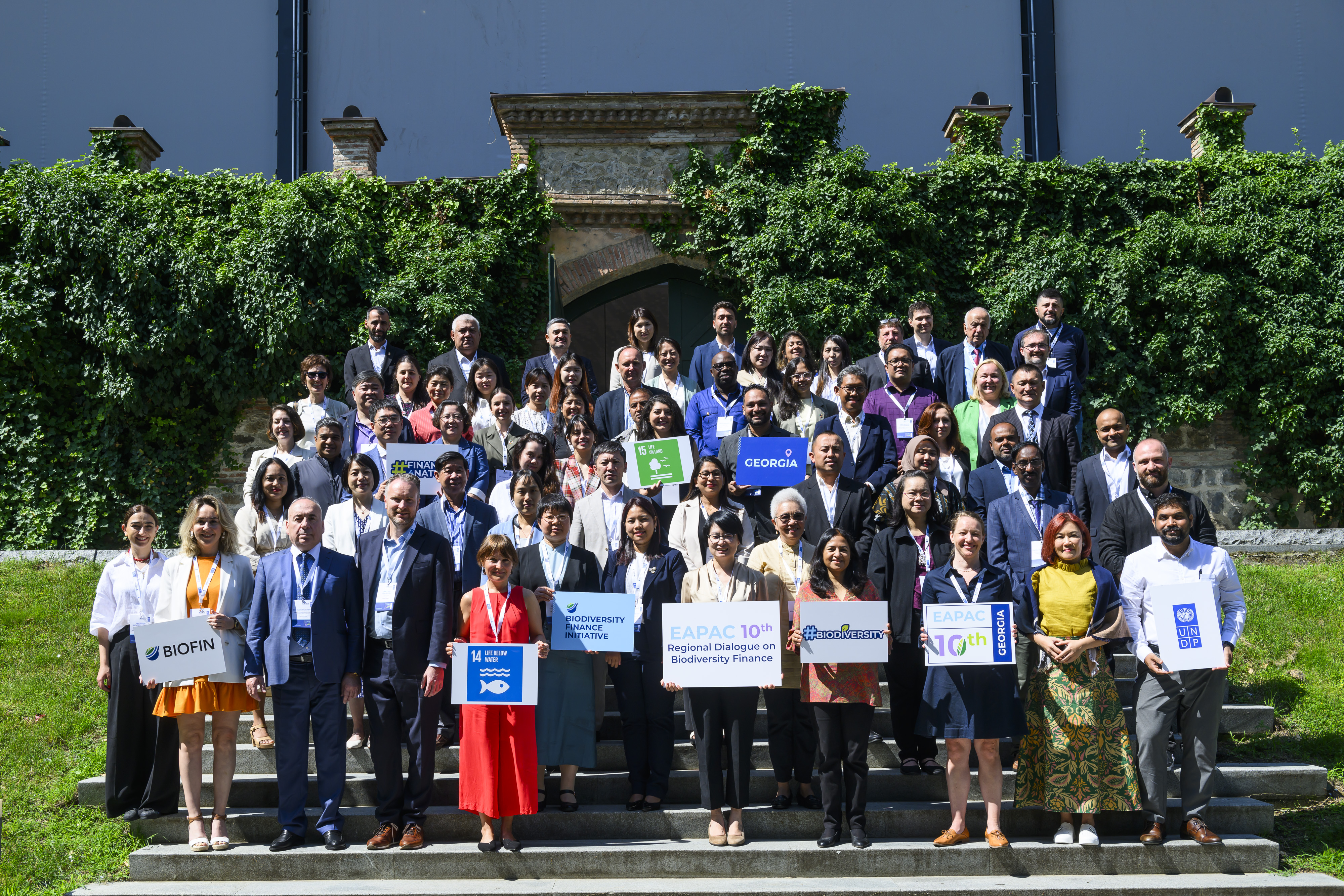
Financing biodiversity is crucial for environmental sustainability, human well-being and achieving global development goals. However, there is a significant funding gap for biodiversity, amounting to over US$ 820 billion. Around US$ 950 billion is needed annually to restore and protect ecosystems, but only US$ 121 billion is allocated for these purposes. Closing this gap will require the combined efforts of governments, private sector actors, NGOs, and communities to mobilize and allocate resources effectively.
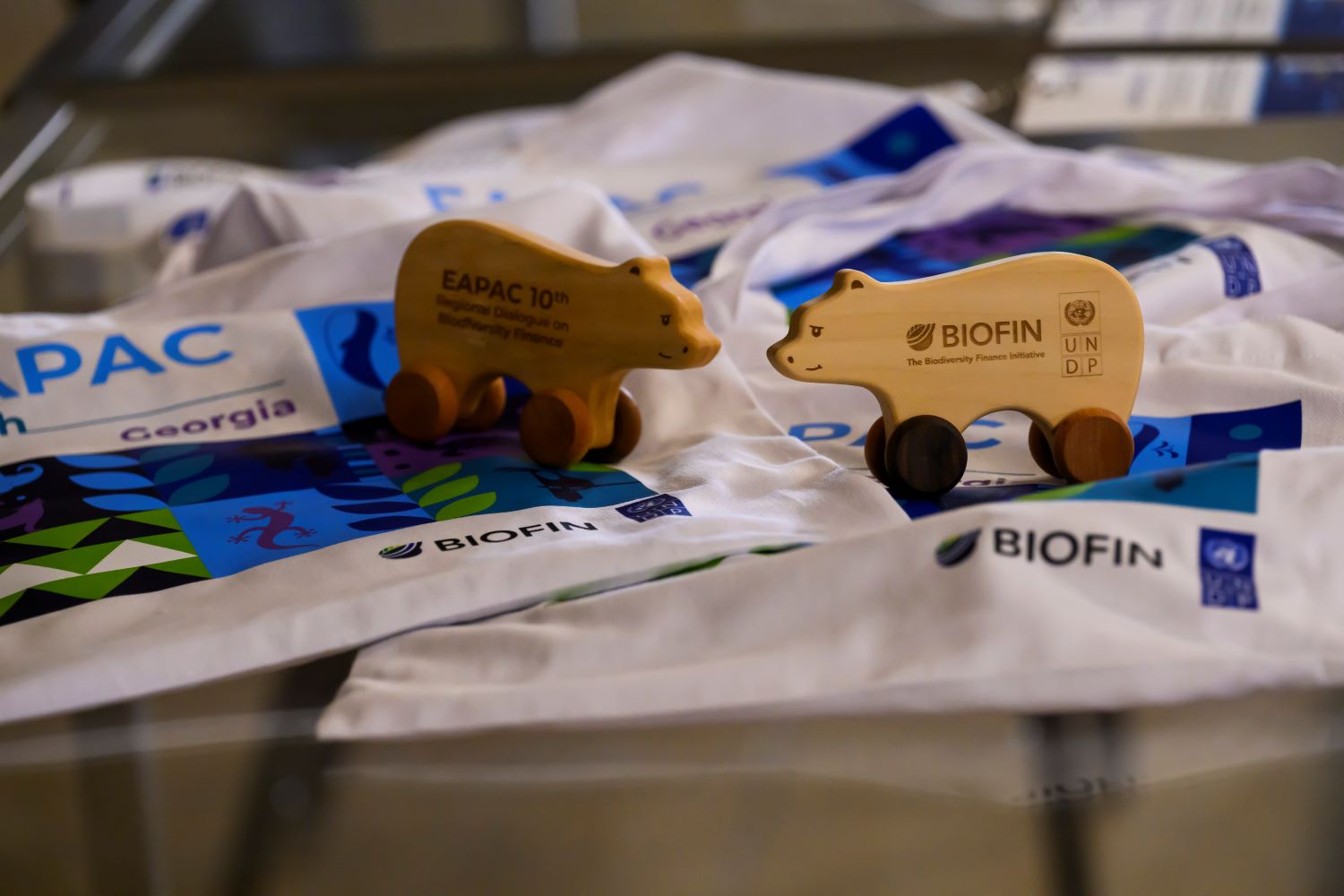
Since its inception in 2012, the United Nations Development Programme Biodiversity Finance Initiative (UNDP-BIOFIN) has supported 41 countries worldwide in developing biodiversity financing plans and mobilizing resources for conservation. Its innovative approach enables countries to measure current spending on biodiversity, identify financing needs and find appropriate financing solutions to close national biodiversity financing gaps. In 2024, 91 more countries will embark on this journey with the help of the Global Environment Facility and UNDP.
"Globally, we have catalyzed US$ 600 million and unlocked US$ 1 billion in public and private finance for nature conservation. We are working with local communities, civil society, national parks, private institutions, and government organizations to secure the financing needed to achieve biodiversity goals on the ground," said Onno Van den Heuvel, Head of the Biodiversity Finance Portfolio at UNDP.
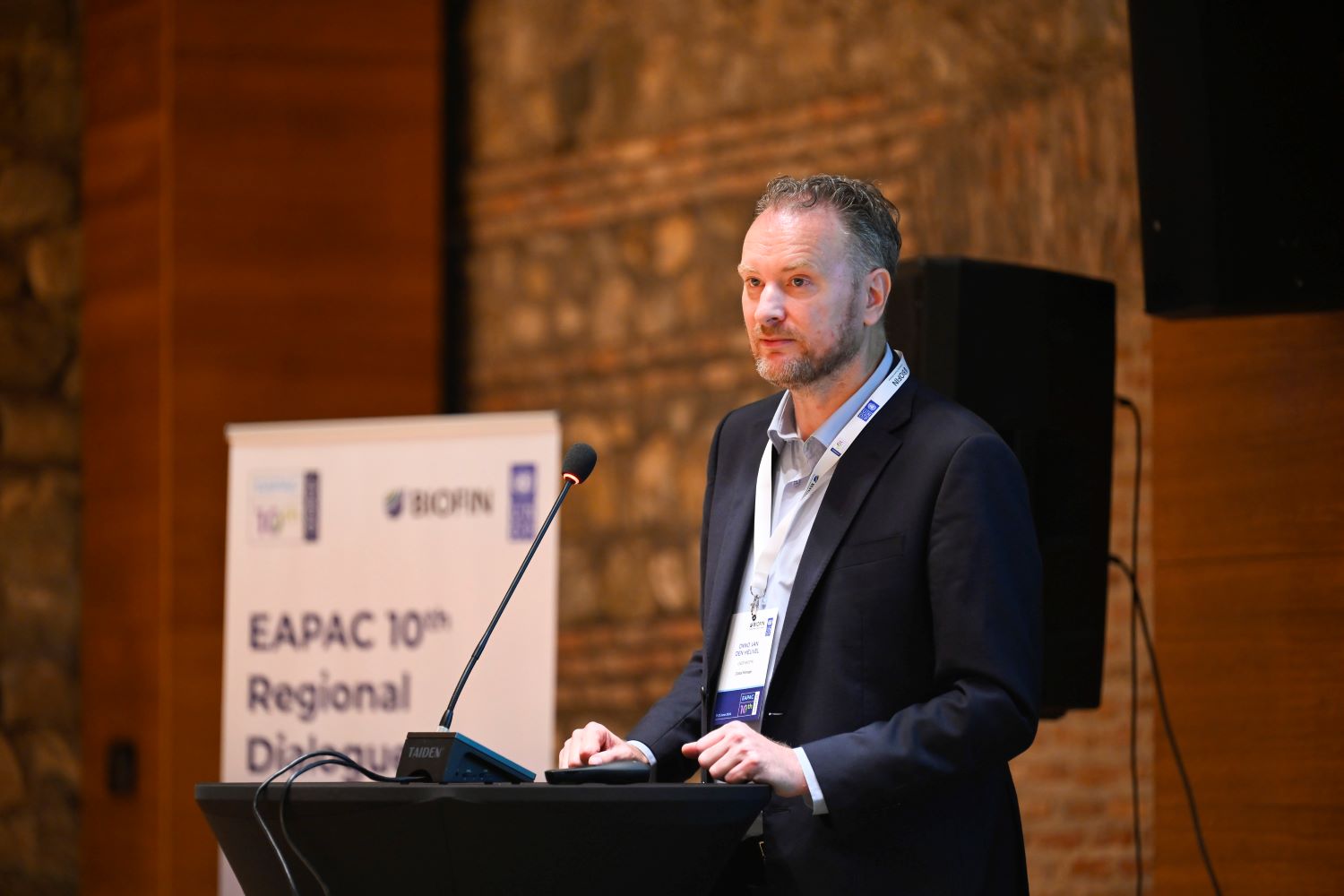
Onno Van den Heuvel, Head of the Biodiversity Finance Portfolio at UNDP
Every year, UNDP-BIOFIN organizes regional dialogues around the world to share best practices and refine strategies, mechanisms, and methodologies. From 11 to 13 June, the 10th Regional Dialogue on Biodiversity Finance for countries in Asia, Europe and the Pacific will take place in Tsinandali, Georgia. More than 70 biodiversity finance experts and government representatives from 17 countries will come together to share experiences, build capacity, discuss the effective implementation of biodiversity finance plans and explore opportunities for financing solutions.
“This dialogue is an invaluable platform for biodiversity finance experts from Europe, Asia, and the Pacific to share experiences and insights on effective implementation of finance solutions. Participants will learn about innovative resource mobilization strategies such as disclosure frameworks, subsidy repurposing, insurance mechanisms and risk management strategies,” said Tracey Cumming, Technical Advisor on Environmental Finance for the Biodiversity, UNDP-BIOFIN.
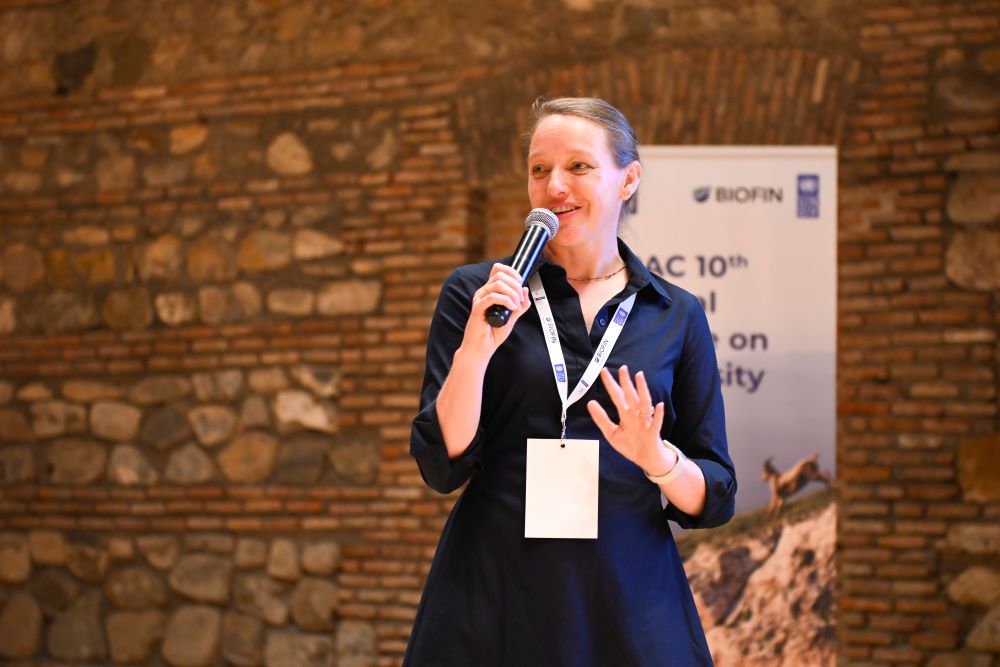
Tracey Cumming, Technical Advisor on Environmental Finance for the Biodiversity, UNDP-BIOFIN
The regional dialogue discussions will cover topics such as biodiversity finance in agriculture, finance sector participation, positive incentives, impact investments, repurposing harmful subsidies, community engagement and national biodiversity strategies. Countries will share their experiences with biodiversity financing, from improving protected area finance to results-based budgeting and fintech.
"Georgia is one of the first thirty countries to initiate a national biodiversity financing process in 2016. The country has made significant strides in securing resources for biodiversity conservation and developing and implementing effective policies. Increasing budget allocations for biodiversity conservation is a moral imperative and the wisest investment in our shared future," noted Solomon Pavliashvili, Deputy Minister of Environmental Protection and Agriculture of Georgia.
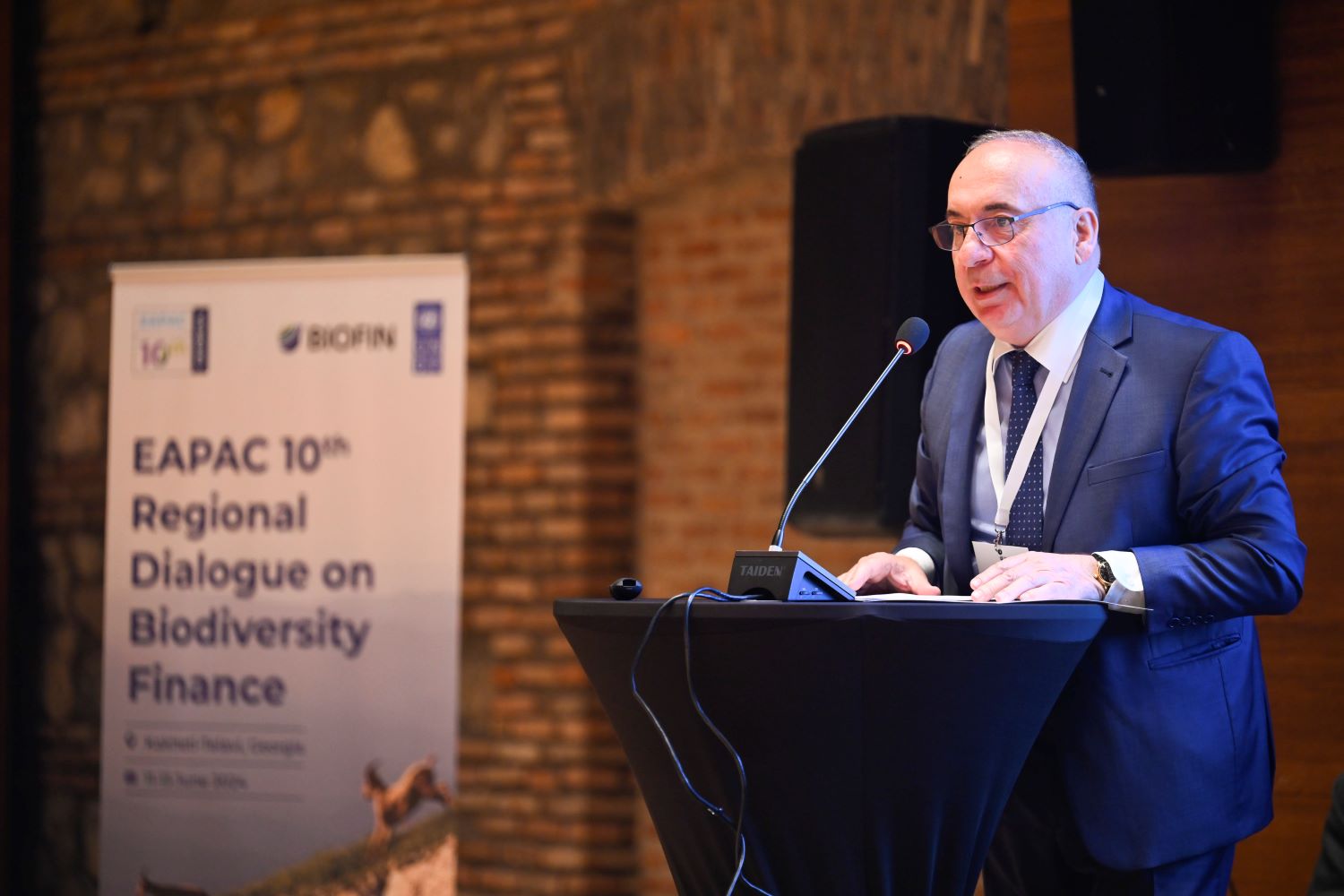
Solomon Pavliashvili, Deputy Minister of Environmental Protection and Agriculture of Georgia
Georgia joined the global BIOFIN partnership in 2016 and adopted the Biodiversity Finance Plan in 2019. Since then, the state budget for the Department of Forest and Biodiversity has quadrupled, from 100,000 GEL to 400,000 GEL annually. Overall, the annual state budget for biodiversity has increased by GEL 620,000 (around US$ 240,000).
Over five years since adopting the National Biodiversity Financing Plan, UNDP-BIOFIN has mobilized US$1.5 million in Georgia through key activities, including increasing state budget allocations, engaging the private sector in biodiversity conservation, enhancing ecotourism offerings, and strengthening forest management. Overall, Georgia has introduced 17 innovative financial solutions fostering the sustainable management and conservation of biodiversity.
Categories
Archives
- April 2025 (4)
- March 2025 (8)
- February 2025 (2)
- January 2025 (5)
- December 2024 (4)
- November 2024 (5)
- October 2024 (14)
- September 2024 (6)
- August 2024 (9)
- July 2024 (7)